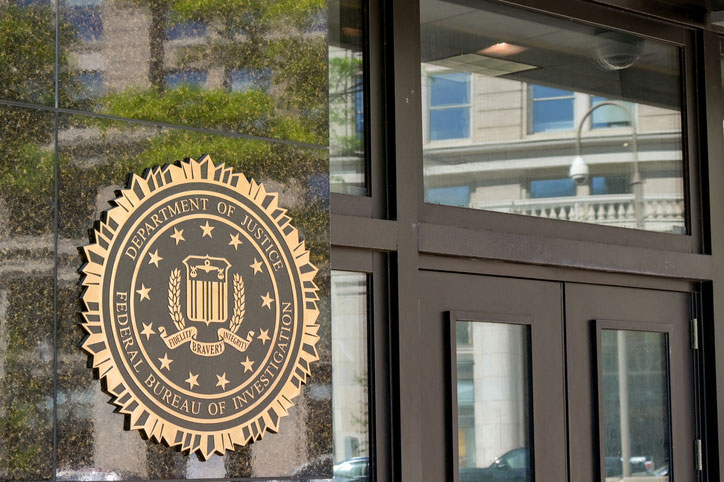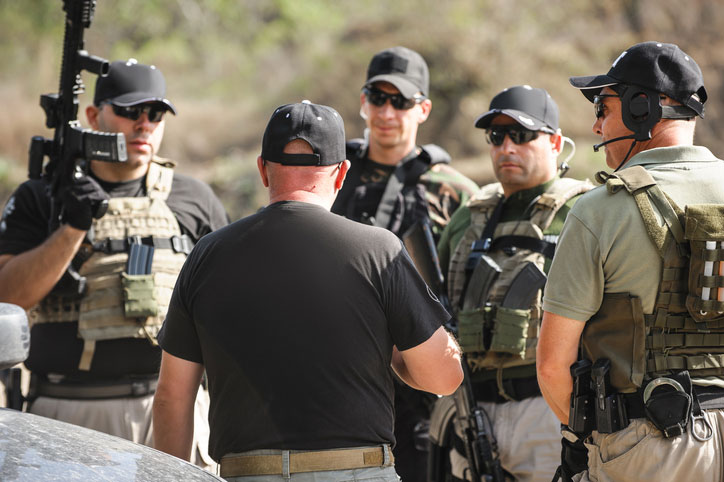With every new presidential administration, government agencies make adjustments in their policies and priorities to match the will of the people as expressed through elected officials. While law enforcement, particularly at the federal level, has traditionally enjoyed bipartisan support and the steady guidance of the United State Constitution regardless of which party inhabits the White House, the re-election of Donald Trump in 2024 promises to make a big splash in all executive agencies.
Of thirty-seven executive orders President Trump signed in the first week of his second term, at least fifteen had some impact on careers in federal law enforcement agencies, from reemphasizing border security to opening up new terrorist organization designations. That’s on top of larger and broader reforms intended for the federal workforce as a whole.
It’s a major shake-up, and with big changes come big opportunities. But in the world of modern law enforcement, you’ll need a college education to take advantage of them.
Federal Law Enforcement Agencies Are Headed for Significant Shifts Over the Next Four Years
Those executive orders have resulted in a lot of uncertainty in many departments. Federal law enforcement agencies are among the few areas of government that have been exempted from a hiring freeze. And certain programs or initiatives within agencies are likely to see a real boost in hiring.
Still, some agencies may see their core mission diminished and may even drop headcount shortly. BATF (the Bureau of Alcohol, Tobacco, and Firearms) will likely have fewer enforcement cases under an administration that wholeheartedly embraces the original meaning of the Second Amendment, while the president is currently discussing returning the mission of FEMA (Federal Emergency Management Agency) to the states.
Taking advantage of law enforcement agency expansion in the Trump era means choosing an agency wisely.
In other cases, however, some of the central promises of the new administration hinge on a major hiring surge at some departments. The Department of Homeland Security (DHS), in particular the US Immigration and Customs Enforcement (ICE) and Customs and Border Protection (CBP) units, will need tens of thousands new staff to implement the promised expulsion of illegal immigrants and increase security at the borders. The DEA (Drug Enforcement Administration) may also see stepped-up emphasis in its mission to turn fentanyl back at the borders.
At the same time, a purge of the ranks of the FBI (Federal Bureau of Investigation) and DOJ (Department of Justice) promises to open up slots not just for new hires, but for current employees looking for promotions.
But standards are high at all of these agencies. College graduates are likely to be best positioned to reap the rewards of any shake-ups.
Looking At the Best Degrees To Earn To Take Advantage of Trump-Era Law Enforcement Opportunities

Federal law enforcement is the varsity when it comes to American policing, and you will need qualifications well above what the average beat cop has to provide.
Since policing in general is evolving toward higher education requirements, that probably means you’re going to want a bachelor’s degree at a minimum. For the heavy hitters at the FBI or DOJ, or in senior or technical positions with U.S. Marshals, DHS, or DEA, that can mean a master’s degree.
Some of the most popular majors to qualify for these roles are in areas like:
- Criminology
- Criminal Justice
- Homeland Security
- Law Enforcement Intelligence and Analysis
- Crime Science Investigation
A Bachelor’s Degree Helps With Your First Steps Into Federal Law Enforcement
At the bachelor’s degree level, any of these mean four years of study split between subjects in your major and a core of liberal arts coursework common to any bachelor’s program.
The core subjects will vary depending on your major but are likely to run toward classes in security and police administration, critical infrastructure protection, and corrections science. These are the topics that will prepare you for specific jobs and give you the kind of law enforcement skills that make you an asset to any federal agency.
But you can’t sleep on the other side of the program, either. The time-tested liberal arts coursework in math, sciences, social studies, history, and English build exactly the kind of advanced thinking and problem-solving skills you need in law enforcement. An understanding of cultural factors and social pressures helps unlock the criminal mind. Critical thinking skills allow you to think on your feet in rapidly developing situations. And clear communication and writing skills allow you issue orders and relay intelligence clearly even under immense stress.
Putting those two types of knowledge and skill together is the secret sauce for college degrees in law enforcement. That’s exactly why they are valuable for new hires in federal agencies.
A Master’s Degree Can Take You Into the Top Ranks at Many Federal Law Enforcement Agencies
In some cases, though, you won’t be stopping at just a bachelor’s degree. Once that four-year degree is under your belt, you have the option of continuing on for a year or two of advanced studies to earn a master’s degree.
Master’s programs go to the most advanced, cutting-edge thinking in their respective fields and put you in the front seat for developing and understanding new breakthroughs. They typically include aspects of original research, including a thesis or capstone requirement that allows you to put together and express your own ideas.
Many graduate programs also involve internship options that give you first-hand experience in the field. This could even put in a role at the very same federal law enforcement agency you hope to work for after you graduate.
In other cases, you may already be employed in the lower ranks of these agencies when you decide to step up your education. That may be a particularly good idea today if you have your foot in the door at the FBI or DOJ and are looking for a promotion. With gaps appearing in senior leadership at the organization, a master’s—and the right connections—are just what you need to be eligible for one of those slots.
Making Connections to Advance Your Career in Federal Law Enforcement

Of course, where you earn your degree can matter, too. People you meet during your college career, and particularly professors and special guest lecturers, can provide valuable personal connections to help get your name to the top of the list when promotions and hiring are in play.
It’s worth exploring the Heritage Foundation’s college recommendations. These are schools that meet the preferred criteria and that are most likely to have you rubbing shoulders with the right thought leaders and advisors.
Your personal efforts to support the administration before or while you are seeking such positions may also come into play. It’s not going to be a bad thing to show that you have, in your current position, been diligent in pursuit of immigration enforcement or otherwise tough on crime.
There’s a big role for federal law enforcement players with the right training and motivation, and we may only have seen the tip of the iceberg when it comes to how federal agencies will have to step up to make America great again. You can start preparing for a role in that right now with a degree in criminal justice, homeland security, or public safety.






